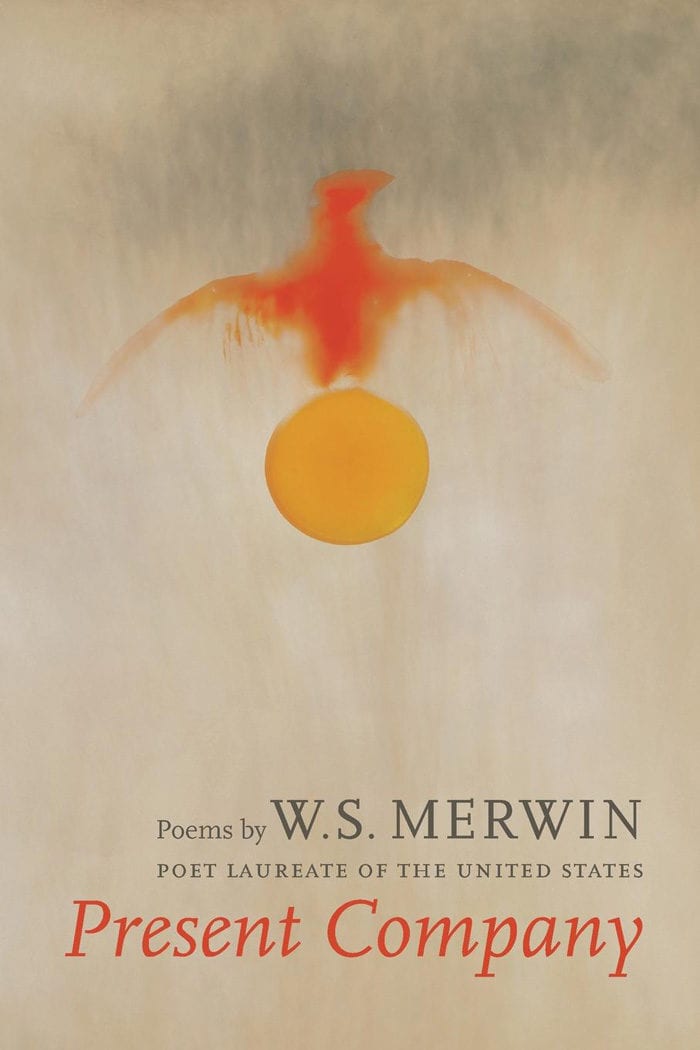
In this masterwork from one of America’s foremost poets, one-time United States Poet Laureate W.S. Merwin guides readers to universal themes through worldly specifics in poems that are fully engaged with living, serious yet playful, inspiring and full of wonder. Similar in tone and effect to Pablo Neruda’s Elemental Odes, every poem in Present Company addresses the human encounters and ordinary objects of daily life. Whether writing of an imaginary vehicle in “To Zbigniew Herbert’s Bicycle” or watching fireworks from a distance in “To the Coming Winter,” Merwin creates a rare and compelling intimacy.
ISBN: 9781556592331
Format: Paperback
Reviews
“[T]he Pulitzer Prize winner seems especially mindful of age and mortality, and these poems—like a series of heartfelt thank-you notes—offer homage to the things of this world… [and] are suffused with a warmth and clarity achieved over six decades of disciplined dedication to his art.” —Library Journal
“Each of the 100-plus poems in Merwin’s meditative, playful, and lithely beautiful new collection… begins with the word “To” and directly addresses some aspect of nature or the self, a feeling or an idea, a person, place, or moment. Merwin keeps his language simple but his perceptions complex. Classical in their lines of inquiry and restraint yet vital in their attunement to the here and now, these personal odes and musings on daily existence and the cycles of life are, by turns, bemused and exalted. As Merwin moves from contemplating his reflection in the mirror to musing over memory, grief, duty, absence, purity, and the splendor of the earth, the subtle, wavelike motion generated by each poem infuses the collection with buoyancy and light.” —Booklist
“Merwin’s 24th volume of poems is his first since last year’s massive new-and-collected Migration: it may be the much-lauded poet’s clearest and most unified in many years, and it is almost certainly his most moving. Following Kenneth Koch’s New Addresses, its 101 poems address a person, place, object or abstraction (‘To the Shadow,’ ‘To the Stone Paddock by the Far Barn’). Almost all seek, and many achieve, a deliberate pathos over the passage of time: ‘I will wait and you can follow alone,’ concludes Merwin (who won the 1970 Pulitzer Prize) in ‘To Lili’s Walk,’ ‘and between us the night has come and gone.’ Often stark, at times nearly imageless, the poems recall particular moments in Merwin’s own life, comment on the act of writing or introduce gentle humor… Some of the best, such as ‘To My Grandfathers,’ remember dead family members and friends. Short-lined free verse pieces ‘To the Soul’ and ‘To Forgetting’ may become new anthology signatures or provoke new attention to this elder statesman of American verse.” —Publishers Weekly
“As some painters gradually move away from representation, painting down to the essence of color, composition and geometry, so has Merwin over the decades rejected the careful training of formalism in favor of poems that contain themselves on the page, forcing the eye to fight the brain for their truest rhythm and meaning. When read as a collection, the poems have the rapid tumble of nature, like being buffered about by the ocean’s relentless, id-less broil.” —The Bohemian
“Henry James once wrote, ‘Try to be one of the people on whom nothing is lost.’ Merwin is one of those people… The poems of Present Company are works of extreme solitude, quiet as the language of thought… These poems do not surprise or astonish; punctuation and metrical compulsion would help if that were their intention, but it is not. Instead they bring the reader into a contemplative moment, intensely isolated; and rather than ending, they fade into silence that was from the beginning their objective.” —North Dakota Quarterly
“… rich with image, with thought, with scented wine of long mulling… Present Company flutters its ribbons of poems in the soft breeze.” —Kingdom Books: Letters to/from Home
